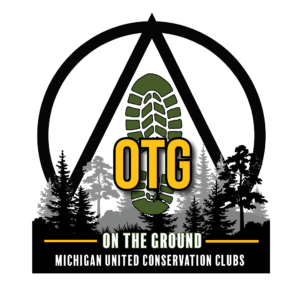On the Ground: Thank You, Wildlife Volunteers
 Although 2020 has had its fair share of hardships, there is still much to be celebrated and grateful for. This is especially true for the On the Ground (OTG) program, which faced an uncertain fiscal future and limited habitat improvement hours due to the COVID-19 pandemic. However, we are now ending the year on a high note and moving into 2021 with an increased awareness of how important the habitat work we complete on public land is to both wildlife and humans. As we move forward into another year of habitat improvement and land stewardship, I wanted to take a moment to write a brief note of gratitude to the 3,108 volunteers that have dedicated more than 13,000 hours towards our public lands, waters and wildlife since the OTG program was founded in 2013.
Although 2020 has had its fair share of hardships, there is still much to be celebrated and grateful for. This is especially true for the On the Ground (OTG) program, which faced an uncertain fiscal future and limited habitat improvement hours due to the COVID-19 pandemic. However, we are now ending the year on a high note and moving into 2021 with an increased awareness of how important the habitat work we complete on public land is to both wildlife and humans. As we move forward into another year of habitat improvement and land stewardship, I wanted to take a moment to write a brief note of gratitude to the 3,108 volunteers that have dedicated more than 13,000 hours towards our public lands, waters and wildlife since the OTG program was founded in 2013.
Without volunteers who are willing to travel to sometimes distant and obscure event locations and dedicate a hefty portion of their weekend to improving their natural resources, the OTG program would not exist. It is the volunteers who show up to projects with positive, can-do attitudes and deep respect for the resource that makes this program everything that I hoped it would be when I first learned about it and when I was first given the opportunity to coordinate it. I have met diverse individuals who love the land for equally diverse reasons, and habitat is consistently the unifying force that brings us all together. From hunters, anglers and trappers to kayakers, birders and hikers, the OTG program has benefited from the time, energy, skills and enthusiasm of all kinds of outdoor recreationists.
Thank you, volunteers, for not only preaching your love and dedication to conservation but for getting out into the field and making an on-the-ground impact for Michigan land and wildlife. Thank you for your enthusiasm, knowledge and stories at each event, where new friendships are forged and we all get to leave a lasting, positive mark on the public lands we love.
This was certainly one of the more challenging years for the world of conservation, but hope is not lost. When I think of the great people I was still able to meet and interact with while improving wildlife habitat during this pandemic and the fact that, despite everything, people are still searching for ways to give back and do good, my hope is renewed in full.
This holiday season, I hope you enjoy time outdoors and reflect on all of the things that bring you joy. Thank you to everyone who not only shares their voice in conservation but their time, shovels and work boots as well.
I look forward to improving more wildlife habitat with you in 2021.
Yours in Conservation,
Makhayla LaButte
MUCC Habitat Volunteer Coordinator
The post On the Ground: Thank You, Wildlife Volunteers appeared first on Michigan United Conservation Clubs.
Recent Posts



